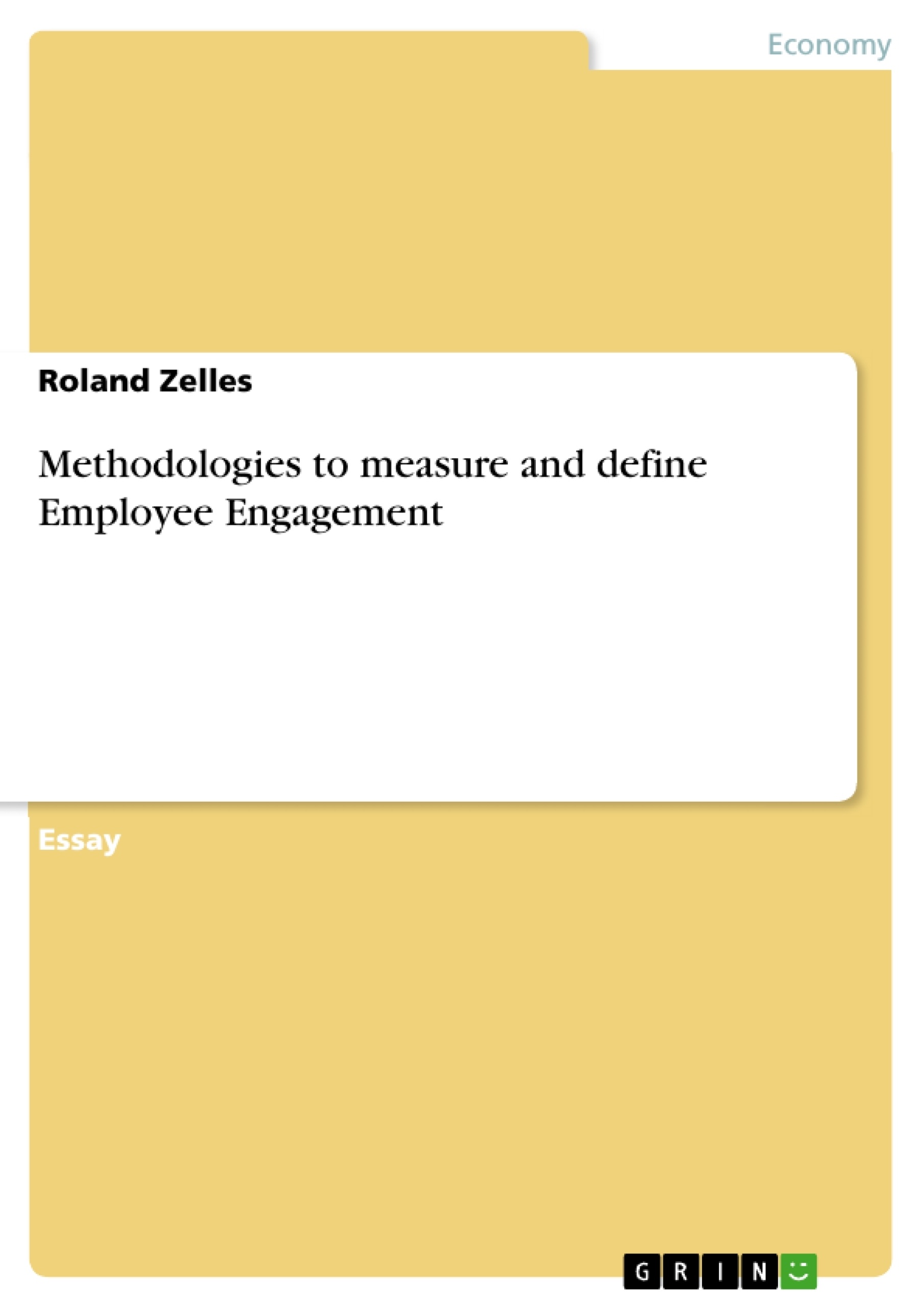Employee engagement has been characterized as a distinct and unique construct that consists of cognitive, emotional, and behavioral components associated with individual role performance. Engaged employees often display a deep, positive emotional connection with their work and are likely to display attentiveness and mental absorption in their work. Engaged employees are consistently more
productive, profitable, safer, healthier, and less likely to leave their employer.
Employee engagement is a new term for organizations due to its recent
transformation from the previously known concepts of employee satisfaction and employee commitment. Although the organizations often struggle in achieving their desired goals, they tend to claim employees to be one of their important assets. This is mainly because of the importance attached to their efforts and their impact on the
organization’s overall performance and productivity. Hence, employee engagement holds great significance not only for the traditionally operating companies but also for the knowledge worker organization which is based on human intellect and creativity.
Despite the influential role of employee engagement, companies continuously struggle with it. This can be attributed to the inconsistency and difference in the way Employee Engagement is defined and measured. Thus, there is a dire need to achieve universality in this context in order to achieve greater improvements for the organizations. One specific group of employees in high tech companies are knowledge workers. Knowledge workers are employees such as data analysts, product developers, planners, programmers, service providers and researchers who are engaged primarily in acquisition, analysis, and manipulation of information as opposed to production of goods. Today’s workforce in a working environment, where knowledge, the application of that knowledge in research and development and the
speed and quality of product development, sales and marketing is more important, than traditional production knowledge is often described as the Knowledge worker age.
Inhaltsverzeichnis (Table of Contents)
- Employee Engagement
- Knowledge Workers
- Employee Engagement in Knowledge Organizations
- The Current State of Research on Employee Engagement
- The Definition of Employee Engagement
Zielsetzung und Themenschwerpunkte (Objectives and Key Themes)
This paper examines the concept of employee engagement, particularly within the context of knowledge organizations. It aims to clarify the definition of employee engagement, explore its importance, and analyze the key factors influencing its development and impact on organizational performance.- The definition and measurement of employee engagement
- The significance of employee engagement for organizational success
- Key drivers of employee engagement, such as meaningfulness, safety, and availability
- The role of work culture, management, and leadership in fostering employee engagement
- The relationship between employee engagement and organizational performance, including productivity, profitability, and customer satisfaction
Zusammenfassung der Kapitel (Chapter Summaries)
- Employee Engagement: This chapter introduces the concept of employee engagement, defining it as a distinct construct encompassing cognitive, emotional, and behavioral components. It highlights the importance of employee engagement for organizations and its impact on factors such as productivity, profitability, and employee retention. This section also explores the evolution of the concept from employee satisfaction and commitment.
- Knowledge Workers: This chapter focuses on knowledge workers, a specific group of employees prevalent in high-tech companies. It distinguishes knowledge organizations from traditional organizations based on their emphasis on innovation, creativity, and human resources. This section also discusses the unique challenges and opportunities presented by managing knowledge workers and their vital role in organizational success.
- Employee Engagement in Knowledge Organizations: This chapter explores the specific application of employee engagement principles within knowledge organizations. It emphasizes the importance of fostering a culture of creativity, innovation, and individual development to effectively engage knowledge workers. The chapter highlights the need for management strategies that cater to the unique needs and characteristics of this workforce.
- The Current State of Research on Employee Engagement: This chapter reviews the current state of research on employee engagement, exploring various studies and findings from the past few decades. It examines key drivers of employee engagement, including work culture, management style, and employee satisfaction. This section also analyzes the impact of employee engagement on organizational performance and highlights the ongoing challenges and future directions in this field of research.
- The Definition of Employee Engagement: This chapter delves into the various definitions and interpretations of employee engagement, highlighting the lack of consistency in its conceptualization. It reviews the contributions of key researchers, including Kahn, Maslach et al, Holbeche and Springett, and Saks, who have proposed different models and frameworks for understanding employee engagement. The chapter analyzes the strengths and limitations of these different perspectives and emphasizes the importance of achieving a more unified and comprehensive understanding of this complex concept.
Schlüsselwörter (Keywords)
This paper focuses on the crucial topics of employee engagement, knowledge workers, organizational performance, work culture, leadership, management strategies, and research findings. It explores the complexities of defining and measuring employee engagement, while highlighting the impact of various drivers on individual and organizational success.Frequently Asked Questions
How is employee engagement defined in this study?
Employee engagement is defined as a unique construct consisting of cognitive, emotional, and behavioral components related to individual role performance and a deep connection to work.
What are "knowledge workers"?
Knowledge workers are employees like data analysts, programmers, and researchers who primarily acquire, analyze, and manipulate information rather than producing physical goods.
Why is engagement critical for high-tech companies?
In the "Knowledge worker age," organizational success depends on human intellect, creativity, and the speed of innovation, all of which are driven by highly engaged employees.
What are the benefits of engaged employees?
Engaged employees are consistently more productive, profitable, safer, and healthier, and they are significantly less likely to leave their employer.
What challenges do organizations face in measuring engagement?
The main challenges are the inconsistency in definitions and the lack of a universal measurement framework, which makes it difficult to implement effective improvements.
- Citation du texte
- Roland Zelles (Auteur), 2009, Methodologies to measure and define Employee Engagement, Munich, GRIN Verlag, https://www.grin.com/document/197605



